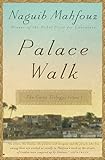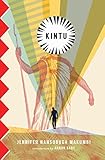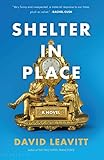 This year, the year I finally finished my historical novel, New York, My Village, my reading has mainly revolved around African historical novels and mainly from Anglophone Africa. I’ve read some of these books before, and others I was reading for the first time. It was a limited tour of our diverse and precious continent; there is so much out there. I ended up using most of these novels in my graduate writing class, to showcase how each African writer has used their unique literary styles to grapple with their history and place. In this class we were Nigerian, American, Russian, Indian, Palestinian, and Indian. One of the Americans had lived in so many places even she isn’t sure anymore what she is!
This year, the year I finally finished my historical novel, New York, My Village, my reading has mainly revolved around African historical novels and mainly from Anglophone Africa. I’ve read some of these books before, and others I was reading for the first time. It was a limited tour of our diverse and precious continent; there is so much out there. I ended up using most of these novels in my graduate writing class, to showcase how each African writer has used their unique literary styles to grapple with their history and place. In this class we were Nigerian, American, Russian, Indian, Palestinian, and Indian. One of the Americans had lived in so many places even she isn’t sure anymore what she is!
I went back to read Alex Haley’s Roots, which I first devoured in secondary school. I didn’t only enjoy this saga anew. The story drove me back to my 1980s understanding of Kunta Kinte’s capture and enslavement. After reading this, I remembered being really afraid in the forests of my village, Ikot Akpan Eda, as I searched for firewood, as though slavers would leap from nowhere and steal me.
 I first read Chinua Achebe’s Things Fall Apart in primary school. I don’t know how many times I’ve read it or am going to read it. Each time, I learn something new. As I reread the novel this year, I remembered being asked to read out a passage at the United Nations during its memorial service for Achebe in 2014 in New York City. It was an emotional thing; I’d never read it out before; he’d never been so present in my reading. I was reading about Okonkwo’s wrestling prowess, but I was thinking of Achebe instead. It was difficult to find words to console the family members, friends and former students who’d shown up to celebrate the great man.
I first read Chinua Achebe’s Things Fall Apart in primary school. I don’t know how many times I’ve read it or am going to read it. Each time, I learn something new. As I reread the novel this year, I remembered being asked to read out a passage at the United Nations during its memorial service for Achebe in 2014 in New York City. It was an emotional thing; I’d never read it out before; he’d never been so present in my reading. I was reading about Okonkwo’s wrestling prowess, but I was thinking of Achebe instead. It was difficult to find words to console the family members, friends and former students who’d shown up to celebrate the great man.

 Ngugi wa Thiong’o’s Weep Not, Child made me think of a security man in our secondary school we nicknamed “Mau Mau,” after the Kenyan militia that fought the colonial masters. This man was a real terror to us. In the book, we both loved and hated the Mau Mau for their determination to gain independence from Britain and for their violence to their fellow Blacks. In this writing class, we were fixated on the education of Njoroge and on how the Kenyans saw the land, which was quite different from how the white settlers saw it. A Grain of Wheat, another novel about the Mau Mau, always reminds me that Ngugi had rewritten and republished this same novel 20 years after its first publication. A useful anecdote for students who ask me how many rewrites are enough. The next time I see Ngugi I must ask him when to expect the next rewrite!
Ngugi wa Thiong’o’s Weep Not, Child made me think of a security man in our secondary school we nicknamed “Mau Mau,” after the Kenyan militia that fought the colonial masters. This man was a real terror to us. In the book, we both loved and hated the Mau Mau for their determination to gain independence from Britain and for their violence to their fellow Blacks. In this writing class, we were fixated on the education of Njoroge and on how the Kenyans saw the land, which was quite different from how the white settlers saw it. A Grain of Wheat, another novel about the Mau Mau, always reminds me that Ngugi had rewritten and republished this same novel 20 years after its first publication. A useful anecdote for students who ask me how many rewrites are enough. The next time I see Ngugi I must ask him when to expect the next rewrite!
 The penultimate time I read Alan Paton’s Cry, the Beloved Country was in 2009 when Oprah had just picked my first book, Say You’re One of Them, for her bookclub. I’d returned to it because it was the first book by an African writer she’d ever picked. I disappeared into it, to hide from the buzz. Discussing this book in my class this year, my students were very conscious of how much power Paton has in his portrait of the characters. Some believed he was partial in the portrait of his fellow whites. What does it mean to write across race, gender, culture, etc.?
The penultimate time I read Alan Paton’s Cry, the Beloved Country was in 2009 when Oprah had just picked my first book, Say You’re One of Them, for her bookclub. I’d returned to it because it was the first book by an African writer she’d ever picked. I disappeared into it, to hide from the buzz. Discussing this book in my class this year, my students were very conscious of how much power Paton has in his portrait of the characters. Some believed he was partial in the portrait of his fellow whites. What does it mean to write across race, gender, culture, etc.?
 Naguib Mahfouz’s Palace Walk is always crazy for me. I can’t have enough of his absolute grasp of the psychology of his Egyptian and Muslim characters and how he ensures that the reader remembers the personal details of his huge cast of characters. This civil servant wrote 35 novels, more than 350 short stories, 26 movie scripts, etc. My students wanted to know whether he slept!
Naguib Mahfouz’s Palace Walk is always crazy for me. I can’t have enough of his absolute grasp of the psychology of his Egyptian and Muslim characters and how he ensures that the reader remembers the personal details of his huge cast of characters. This civil servant wrote 35 novels, more than 350 short stories, 26 movie scripts, etc. My students wanted to know whether he slept!
I’m a newcomer to Chimamanda Adichie’s Half of a Yellow Sun. She signed a copy for me in New Zealand in 2009. I wanted to read it right away, but I couldn’t because I was thinking of writing about the same Biafran War. I was afraid of “interference.” I wanted to write my novel from the perspective of the 30 minority ethnic groups of the Niger Delta, something quite different from the Igbo perspective the world knows about. I was relieved, happy, to finally read her book, after finishing New York, My Village! In class, my Igbo student, an alumnus of Adichie’s writing workshop in Nigeria, was so excited to extol the beauty of her multiple third-person narrators and help us translate the Igbo words.
 I didn’t only enjoy the sweeping story in Petina Gappah’s Out of Darkness Shining Light. It got me thinking about my stay in Zimbabwe, Kenya, Tanzania, etc. In this story of the transportation of the corpse of David Livingston from Africa to Europe, she draws a lot from the man’s diary. Her book gives us the chance to discuss whether we must or must not stick to the facts of historical figures’ lives in our fiction. What are the ethics of recreating historical figures? Would it be an abuse of a writer’s powers to make them worse than they were in real life? Who gets to define what just representation means here? But then what does satire do? Are there consequences? Can you still go home after throwing your mother under the bus? Someone drew our attention to the heavy price Hollywood paid for satirizing Kim Jong Un, the North Korean leader, in the movie The Interview. If you know the answer to these concerns, please, send it along…my students also talked nonstop about Gappah’s smooth deployment of two first narrators.
I didn’t only enjoy the sweeping story in Petina Gappah’s Out of Darkness Shining Light. It got me thinking about my stay in Zimbabwe, Kenya, Tanzania, etc. In this story of the transportation of the corpse of David Livingston from Africa to Europe, she draws a lot from the man’s diary. Her book gives us the chance to discuss whether we must or must not stick to the facts of historical figures’ lives in our fiction. What are the ethics of recreating historical figures? Would it be an abuse of a writer’s powers to make them worse than they were in real life? Who gets to define what just representation means here? But then what does satire do? Are there consequences? Can you still go home after throwing your mother under the bus? Someone drew our attention to the heavy price Hollywood paid for satirizing Kim Jong Un, the North Korean leader, in the movie The Interview. If you know the answer to these concerns, please, send it along…my students also talked nonstop about Gappah’s smooth deployment of two first narrators.
 And then there was Jennifer Makumbi’s Kintu. A wonderful epic about Uganda. It’s a book that can consume you—like the centuries-old curse in the story—if you don’t read it slowly. The setting reminded me of all my visits to that country, how much I loved to eat grilled Nile perch from Lake Victoria, the beautiful rolling hills of Mbarara and their banana-tree-filled valleys, the cheerful chants of Benedictine monks welcoming the dawn, etc.
And then there was Jennifer Makumbi’s Kintu. A wonderful epic about Uganda. It’s a book that can consume you—like the centuries-old curse in the story—if you don’t read it slowly. The setting reminded me of all my visits to that country, how much I loved to eat grilled Nile perch from Lake Victoria, the beautiful rolling hills of Mbarara and their banana-tree-filled valleys, the cheerful chants of Benedictine monks welcoming the dawn, etc.
God bless my students for not rioting because I assigned them too many long books to read in a semester! They were even very kind to me when we discussed my stories, “Luxurious Hearses,” and “My Parents’ Bedroom,” as examples of short historical fiction and the power of child narrators. But, initially, I was so afraid of how the actual class would turn out, I went back to attempt to read my stories, to prepare. I was shocked by how many details I’d forgotten! This unsettled me. I was angry at myself. I couldn’t finish reading the stories and didn’t know if my students would suggest I rewrite. It was totally crazy. It gave me another angle to the saying that a story no longer belongs to the teller once it’s out there. Iya uwei, now I can tell you I hate to teach my work. Anyway, in class, I preferred to talk about my research methods by mostly encouraging them to read the 25-page acknowledgment in my new book. Again and again, we returned to the question of what it means to write across race, gender, culture, etc. We read Chinelo Okparanta’s novel Under the Udala Trees to improve on our knowledge of child narrators. And we weren’t just thrilled by her depiction of the Biafran War. We liked the hope she’s giving to queer people.


 What else did I read this year? Maaza Mengiste’s The Shadow King, David Leavitt’s Shelter in Place, Lauren Groff’s Matrix, Elias Rodriques’s All the Water I’ve Seen Is Running, Helon Habila’s Travelers, Kirstin Valdez Quade’s The Five Wounds, Nadifa Mohammed’s The Fortune Men, and Chika Unigwe’s Better Never Than Late. I also went back to take a few peeks at Yemisi Aribisala’s Longthroat Memoirs: Soups, Sex, and the Nigerian Taste Buds. I needed a lot of her Nigerian recipes to get through this year. And as soon as Elnathan John agreed to be the voice of my novel’s audiobook, I had no more excuses but to begin to read his powerful novel, Born on a Tuesday.
What else did I read this year? Maaza Mengiste’s The Shadow King, David Leavitt’s Shelter in Place, Lauren Groff’s Matrix, Elias Rodriques’s All the Water I’ve Seen Is Running, Helon Habila’s Travelers, Kirstin Valdez Quade’s The Five Wounds, Nadifa Mohammed’s The Fortune Men, and Chika Unigwe’s Better Never Than Late. I also went back to take a few peeks at Yemisi Aribisala’s Longthroat Memoirs: Soups, Sex, and the Nigerian Taste Buds. I needed a lot of her Nigerian recipes to get through this year. And as soon as Elnathan John agreed to be the voice of my novel’s audiobook, I had no more excuses but to begin to read his powerful novel, Born on a Tuesday.
This year, I’ve also reread the Book of Job, the four New Testament gospels and the short story, “Gimpel the Fool.” I always love how Job and Jesus and Gimpel exemplify the Wise Fool Paradox. In the face of unbelievable odds, they retain their humanity and compassion. In many ways, my dream was to make Ekong Udousoro, my New York, My Village protagonist, in the likeness of these men and God. One day, you’ll tell me whether I succeeded.
 What’s the last book I want to read this year? Wole Soyinka’s Chronicles from the Land of the Happiest People on Earth. I was very pleased that this generous man, whose books I started reading in secondary school, once told me he liked my Say You’re One of Them! I drove around Ann Arbor, Mich., blasting Lucky Dube and Uko Akpan and bought a bottle of wine and drank alone. But, more importantly, please, anybody who gets a chance to interview him, must beg him to share his secrets about time management, how he writes in all the genres, how he never stops defending the defenseless, how he always seems to exist in two places at the same time because of his endless travels, how he spends time with so many people.
What’s the last book I want to read this year? Wole Soyinka’s Chronicles from the Land of the Happiest People on Earth. I was very pleased that this generous man, whose books I started reading in secondary school, once told me he liked my Say You’re One of Them! I drove around Ann Arbor, Mich., blasting Lucky Dube and Uko Akpan and bought a bottle of wine and drank alone. But, more importantly, please, anybody who gets a chance to interview him, must beg him to share his secrets about time management, how he writes in all the genres, how he never stops defending the defenseless, how he always seems to exist in two places at the same time because of his endless travels, how he spends time with so many people.
More from A Year in Reading 2021 (opens in a new tab)
Don’t miss: A Year in Reading 2020, 2019, 2018, 2017, 2016, 2015, 2014, 2013, 2012, 2011, 2010, 2009, 2008, 2007, 2006, 2005









